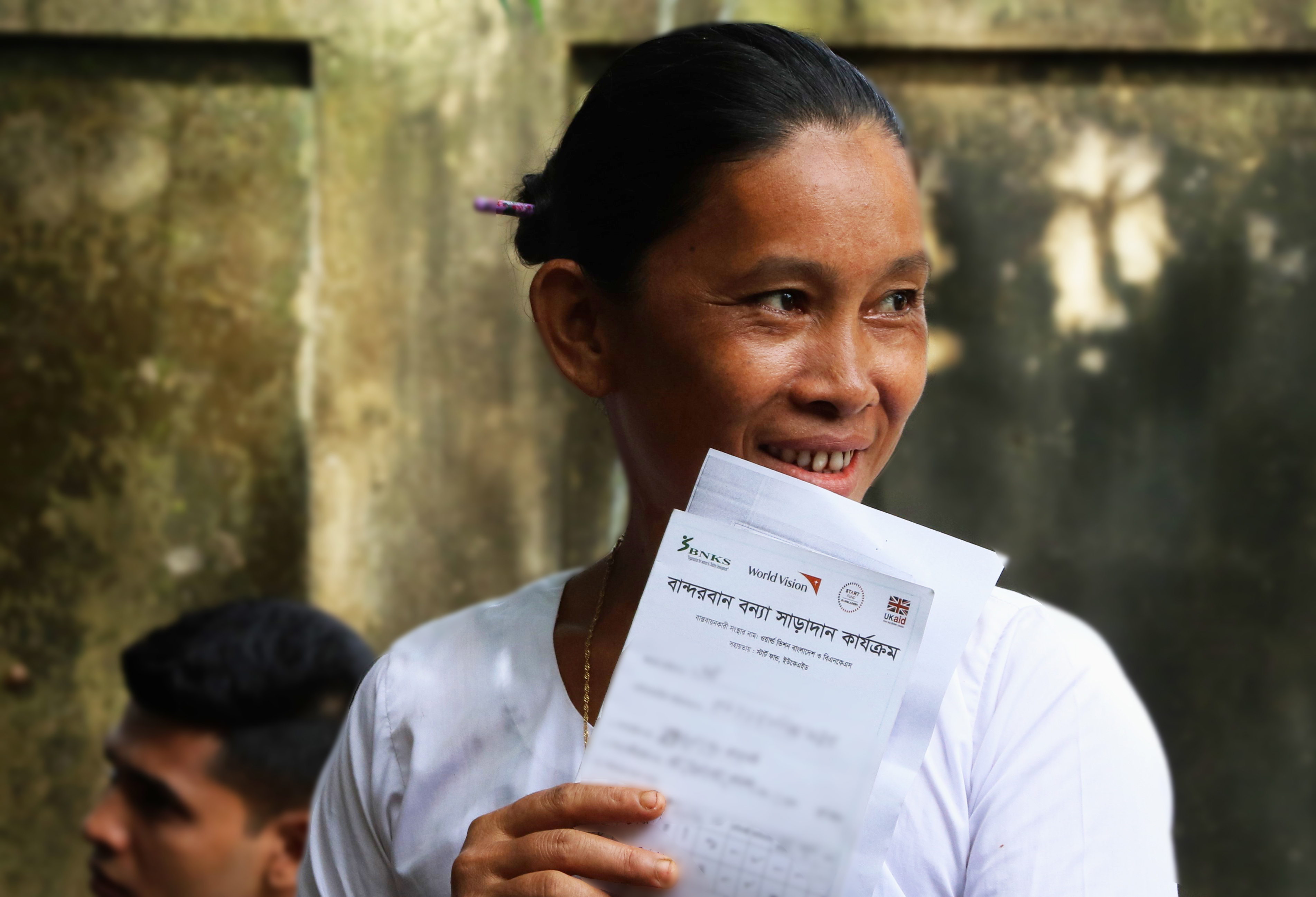In 2020, Start Fund Bangladesh (SFB) conducted an Organisational System Strengthening Initiative (OSSI) facilitated by an external consultant. This initiative took a participatory approach in assisting six of SFB’s local members to identify gaps in the operating functions of their respective organisations.
Bolipara Nari Kalyan Somity (BNKS) was one of these organisations. It is a women-led organisation that has been operating in Chittagong Hill Tracks of southeastern Bangladesh since 1991. A strategic area of work for BNKS has been to tackle the socio-economic challenges facing the indigenous communities that make up half of the population in this three-district region. The executive director of BNKS, Hla Shing Nue, recalls the early years when several local NGOs worked in this region, but now only a handful remain.
“Through the Organisational System Strengthening Initiative, we were able to identify gaps and potential areas of organisational improvement…we then developed an action plan to address these. However, due to limited resources, we have not been able to implement the plan,” said Hla Shing Nue, Executive Director of BNKS.
Bandarban Flood Response in 2019. Photo credit: World Vision
Following a series of workshops under the OSSI, the BNKS core team developed an action plan with a roadmap to support its organizational progression. This action plan included four major thematic areas that required resourcing and investment. The largest financial investment was for the development of a clear strategic plan and a monitoring framework with key indicators to track progress (63 percent of total budget of USD $14,000). A fifth of the budget was assigned to a human resource system, as the organisation felt that the recruitment of the right people in a systemic manner will be significant. The remaining funds were to support on a communication strategy and update its organisational policies, especially around safeguarding and whistleblowing. SFB provided some incentives to support the action plan including a Human Resource Information System for efficient human resource management and a Tally software for day-to-day business management.
“Investing in organisational development is beneficial for the organisation as well as for the partner investing in this. If an organisation's system becomes weak it is difficult to address donor requirements. For example, a current gap in our organization is an adeqaute information management system to track our progress and evidence our learning. Our limited budget makes it difficult to hire and retain quality M&E staff,” said Hla Shing Nue, Executive Director of BNKS.
Almost a year after developing this plan, SFB checked back with BNKS on how the organisational system strengthening plan was progressing. Hla Shing Nue approached BNKS’s partners to invest in this plan and two of its partners, Diakonia and Plan International responded positively as this coincided with their priority investment areas. Diakonia and Plan International have a long standing partnership history with BNKS, and have localisation commitments that are centrally recognised by their global headquarters who have included additional strategies within projects to support local partners’ organisational development.
Bandarban Flood Response in 2019. Photo credit: World Vision
With the financial support of these two agencies, BNKS will be able to implement their plan of organistaional strengthening. However, Hla Shing Nue believes there is still a long way to go. For example, finding and retaining quality staff who can work together to increase BNKS’ reach toward wider humanitarian stakeholders is still a big challenge. She also believes BNKS has to generate some form of income to be sustainable. She has recently acquired some land where they could build a small training center. This could act as an income source for BNKS, though she remains unsure whether she has the knowledge or the capacity to introduce such a business model.
“Project proposals often have to cut out or reduce indirect cost recovery (ICR) and overhead costs in order to compete for limited donor funding. This often results in implementing agencies being unable to improve their organisational capacity and invest in human resources,” said Hla Shing Nue, Executive Director of BNKS.
Recently, through SFB, local organisations have started claiming ICR, and it will be interesting to see whether BNKS uses this recovered cost or part of it, to support its organisational system strengthening. However, the key takeaway is that more donors need to actively engage with local actors like BNKS who have served their communities for years and have not yet been able to fully unleash their potential as an organisation due to limited resources.
Start Fund Bangladesh is a £10m rapid emergency response fund that was created in 2017 with support from UK Aid. Modelled on the Start Network’s successful Start Fund, which activates funding within 72 hours of a crisis alert, it fills a crucial gap in global aid funding. The fund is accessible to both national and international member NGOs operating in Bangladesh to respond early to under the radar emergencies.

